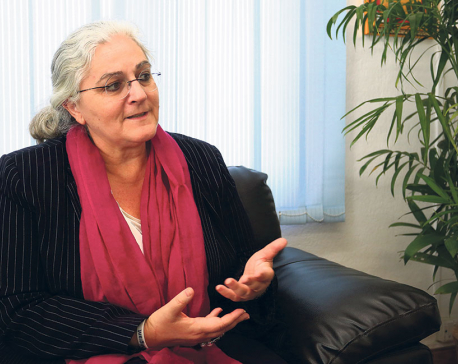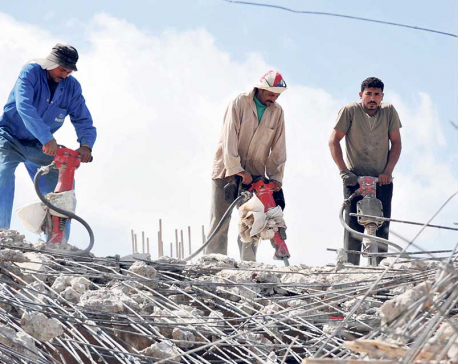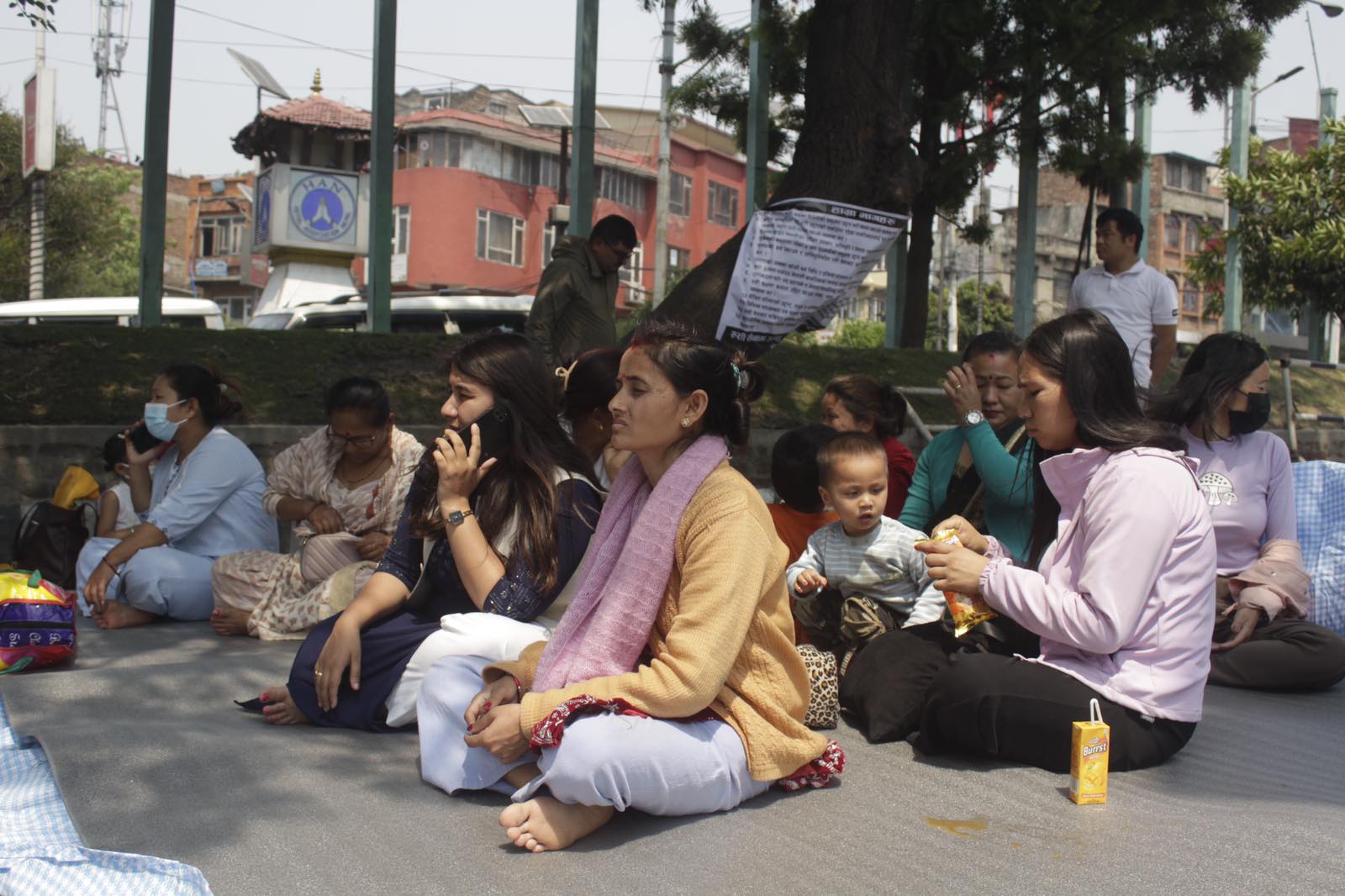
OR

More from Author
More efforts are needed for effective implementation of evidence-informed interventions to improve the health and well-being of both migrants and communities affected by migration
More people are on the move now than ever before. They migrate for several reasons related to work, family and study. According to International Organization for Migration, there were around 272 million international migrants in the world in 2019, which equates to 3.5 percent of the global population.
In Nepal, many youths prefer foreign employment which still continues to be the most significant motivation for international migration. In the past consecutive fiscal years 2015/16 and 2016/17, the Department of Foreign Employment had issued 786,636 permits for foreign employment to over one hundred destination countries. This shows that labor migration for foreign employment is an important development agenda for political leaders, policy makers, migrants and their families.
Moreover, there are evidences of injuries, disabilities and deaths of migrant workers in most of the destination countries. The major public health issues are related to several diseases such as HIV, TB, malaria, and other occupational hazards, traffic accidents including suicide.
Therefore, we need to understand that migration places people in situations which may impact their physical and mental well-being. In addition, conditions surrounding the migration process can increase the vulnerability to ill health.
Migration and health
There is a complex relationship between migration and health. Migration, both within a country and across national borders, is a key consideration in the control of infectious diseases. The delays in seeking care and treatment for the chronic infectious diseases such as TB and HIV can have negative effects for affected populations. Unfortunately, many migrants and their families still lack easy access to health care services in the destination countries.
There are evidences that migration can lead to greater exposure to health risks, such as those migrant workers working in conditions of precarious employment with limited access to essential health care services. Therefore, there is a critical need to analyze the factors that determine the health vulnerabilities and resilience factors of diverse migrant groups.
Migration, among other factors, is considered to be an important social determinant of health which is more likely to have profound impacts on individuals, families and communities. The existing socio-economic, political, legal, cultural, and physical environments have both direct and indirect effects on lifestyle and health of migrants.
Health-related vulnerabilities may increase due to various factors such as lack of access to essential health care services, inadequate hygiene and sanitation, inadequate nutrition and violence. Migrant workers with low level skills are particularly more vulnerable due to low wages, hazardous and harsh working conditions, and a lack of status recognition, social protection and occupational health rights.
In addition, it is also necessary to understand how migration can affect the health of populations, including the ways in which healthy migrants can promote social and economic development and progress toward the global target of universal health coverage which aims to ensure access to affordable and quality health care for all.
On the other side, due to the lack of legal status, stigma, discrimination, language, cultural barriers and low-income levels, irregular migrants may be excluded from accessing primary health care services, vaccination campaigns and health-promotion interventions. This is particularly a serious issue because health rights of migrants and their families need to be protected and promoted at all levels.
Therefore, Ministry of Health and Population has first ever considered migrant health issues in its new national health policy to address the health care needs of migrants and their families. However, there is no comprehensive national strategic plan to address health care needs of migrants and their families.
In this context, migrant health should be mainstreamed in national health system to address health care needs and priorities of migrants at large. More significantly, we need to ensure that health services are delivered to migrants in a culturally and linguistically appropriate way without any discrimination.
In order to improve the ability of health systems to deliver migrant-inclusive services, capacity of policy makers, health workers and migrant communities need to be enhanced at all levels. We need to develop frameworks for the implementation and monitoring of health systems’ performance in delivering migrant-sensitive health services.
Nepal has recently developed migration profile which is a country-owned tool prepared in consultation with a broad range of stakeholders to enhance policy coherence, evidence-based policymaking and the mainstreaming of migration into development plans. However, there are critical needs of promoting the inclusion of migration variables in national statistics, health surveys and routine health management information systems.
The Global Compact for Safe, Orderly and Regular Migration has also outlined health as a cross-cutting priority to address the emerging needs of migrant-sensitive health-care services around the world. This also provides the health community the opportunity to use it as a tool to advance migrant-sensitive health policies at all levels. That is why we need to promote migrant-sensitive health-care systems which aim to incorporate the needs of migrants into all aspects of health services.
Hence, more efforts are needed for effective implementation of evidence-informed interventions to improve the health and well-being of both migrants and communities affected by migration. Toward this end, the regional mechanisms such as Colombo Process and SAARC need to protect and promote health rights of migrants and their families by strengthening regional cooperation and collaborations for migration and health.
The author is a research fellow in global health and health systems
Email: talk2jhabindra@gmail.com
You May Like This

Migration is good. It just has to be done safely
December 18 is marked as International Migrants Day every year. Although both domestic and international migrations have been taking place... Read More...

Social trend of migration effecting more migration
KATHMANDU, Feb 9: Rather than solely due to the lack of job opportunities in the home country, the existing social trend... Read More...

MAJOR CHALLENGE TO SAFE LABOR MIGRATION
The news these days always has cases or incidents of death, migrant workers’ plight, and of their family members being... Read More...

Just In
- Govt padlocks Nepal Scouts’ property illegally occupied by NC lawmaker Deepak Khadka
- FWEAN meets with President Paudel to solicit support for women entrepreneurship
- Koshi provincial assembly passes resolution motion calling for special session by majority votes
- Court extends detention of Dipesh Pun after his failure to submit bail amount
- G Motors unveils Skywell Premium Luxury EV SUV with 620 km range
- Speaker Ghimire administers oath of office and Secrecy to JSP lawmaker Khan
- In Pictures: Families of Nepalis in Russian Army begin hunger strike
- New book by Ambassador K V Rajan and Atul K Thakur explores complexities of India-Nepal relations















_20240419161455.jpg)


Leave A Comment